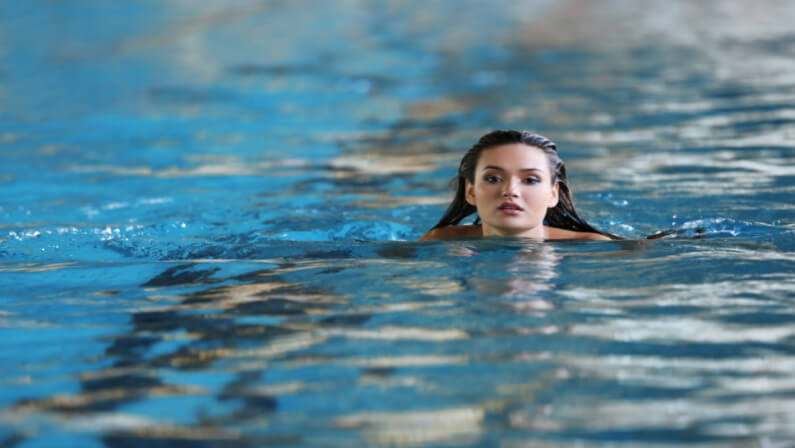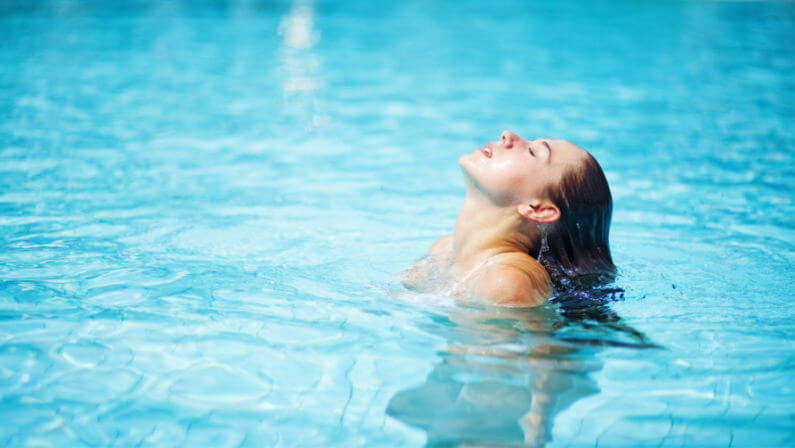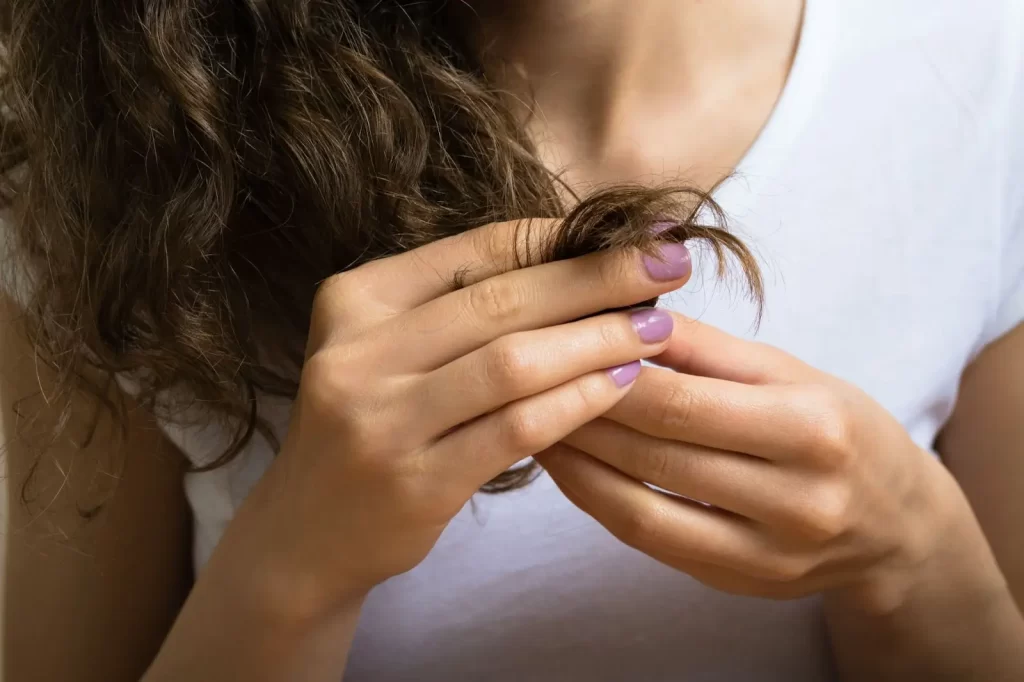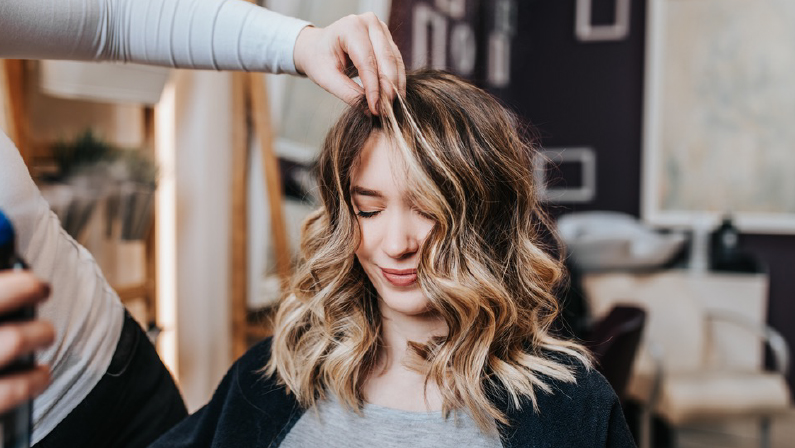
Who doesn’t love a swim in the pool? It brings joy, relaxation, and numerous health benefits. However, chlorine, a typical chemical in swimming pools used to eliminate germs and other potentially hazardous microbes from the water, can be bad for your hair.
While chlorine works well to keep swimming pools clean, it can harm your hair. This article will discuss why chlorine can damage your hair and tips on preventing it.
Can Chlorine Damage Your Hair?
Your hair may suffer serious harm if exposed to chlorinated water frequently and for an extended period. Your hair might suffer harm from chlorine by losing its natural oils, leaving it dry, brittle, and prone to breakage.
How does chlorine damage your hair?
The oxidation of the hair’s natural oils is one of the main ways chlorine harms hair. Because of the breakdown of the oils brought on by this oxidation process, the hair becomes dry and lacks natural lubrication. In addition, hair is more susceptible to environmental variables like sun exposure and heat styling equipment when its natural oils have been removed.
Chlorine also alters the structure of hair, which is another way it harms it. The proteins that make up hair can be damaged by chlorine, causing split ends and breakage. People who often swim may get particularly severe damage since their hair is continually exposed to chlorine and other pool chemicals.

Does Chlorine Turn Your Hair Green?
Chlorine can harm hair and alter its color, among other things. Particularly blonde hair might get a greenish tint after being exposed to chlorine. This is due to a chemical that can stick to hair and color it when chlorine combines with the copper in pool water.
Effects of chlorine on your hair
Sebum, the natural oils your body produces to protect your hair, is stripped away by chlorine.
Chlorine damages your skin and scalp in addition to making your hair:
- Break and crevice
- Remove the natural moisture from your hair
- Alter the color of your natural hair (or dyed hair color)
- Weakness causes split ends.
Casual swimmers don’t frequently notice the effects of chlorinated water; for instance, dipping into the pool once a year while on vacation won’t significantly affect the condition of your hair.
However, it makes little difference if you swim once a month or once a day; some hair types are more vulnerable to chlorine damage than others.
This comprises those who:
- Fine or thin hair
- Colored Hair
- Bleached hair
- Chemical-treated hair
- Dry Hair
- Damaged Hair
Tips to Prevent Chlorine Damage to Your Hair

So, what can you do to protect your hair from chlorine damage? Should you totally miss out on the fun? Not really.
1. Wearing a swim cap while swimming
Swim caps can assist in preventing your hair from coming into direct contact with pool water, hence minimizing the quantity of chlorine that does.
2. Before and after swimming, rinse and moisten your hair.
Before going swimming, you can wet your hair with fresh water. Your hair may absorb less chlorine as a result of this. Additionally, you can apply an oil or leave-in conditioner to help shield your hair from chlorine deterioration.
3. Apply swim spray.
You can buy a pool spray product to apply to your hair to prevent chlorine from permeating your strands if you have blonde hair and are particularly concerned about the effects of chlorine on your light-colored hair. All types of hair can use this product.
4. Use outdoor pools for swimming.
Swimming in outdoor pools is recommended whenever possible. The quantity of chlorine that could end up being absorbed into your hair and skin is decreased in outdoor pools because the chlorine gas from the water evaporates more quickly into the air.
5. Make a ponytail out of lengthy hair.
Put your long hair up in a bun, braid, or tight ponytail if you don’t have a swim cap. Contact with chlorine will be reduced as a result.
It’s crucial to completely rinse your hair with fresh water after swimming. Removing any chlorine lingering in your hair can lessen the chance of damage. A clarifying shampoo can also be used to help get rid of any chlorine buildup in your hair.
How To Treat Chlorine-Damaged Hair

Chlorine can cause significant harm to hair, leaving it dry, brittle, and easily broken. So if you’ve been routinely swimming in a chlorinated pool, it’s crucial to take action to treat and restore any hair damage.
Here are some suggestions for treating hair damaged by chlorine:
Rinse your hair with fresh water both before and after swimming.
Wet your hair with fresh water before entering the pool. This may lessen the amount of chlorine that your hair absorbs. Rinse your hair well with fresh water after leaving the pool to remove any remaining chlorine.
Use a clarifying shampoo.
Clarifying shampoo can help remove any chemical buildup in your hair, including chlorine, minerals, and other substances. Find a clarifying shampoo made especially for swimmers.
Hair Transplant: A Lasting Solution for Thinning Hair
Hair transplant procedures have become a popular and effective solution for individuals grappling with persistent hair thinning or loss. For those looking for a more advanced and non-surgical approach to hair restoration, Root Hair Institute emerges as a prominent option. Unlike traditional methods, the Root Hair treatment addresses hair loss at its source, providing a discreet and personalized solution for regaining thicker, healthier hair. The institute’s innovative approach focuses on stimulating natural hair growth, ensuring that individuals experience a transformative result.
Intensely moisturize your hair.
Chlorine can take the natural oils from it, leaving it dry and brittle. Instead, use a deep conditioning treatment once a week to replenish the moisture in your hair.
Visit a Trusted Salon
Ashton and Parker Hair Studio, located in Sugar Land, Texas, offers various hair care services that can help treat damaged hair due to chlorine.
How Can You Remove Chlorine From Your Hair?
You can try a few methods to get the chlorine out of your hair, but it can be very tough.
Here are a few ways to wash the chlorine out of your hair:
- Fresh water rinse. After leaving the pool, immediately rinse your hair with fresh water. This can help stop chlorine from damagingly infiltrating your hair.
- Comb your hair. After washing your hair, brush or comb it with a wide-toothed comb. But be careful not to comb through wet hair (as it can cause breakage). You can gently help detangle your hair using a wide-toothed comb.
- Vinegar for rinsing. You can eliminate chlorine from your hair by mixing vinegar and water. After shampooing your hair, apply a mixture of water and vinegar equal to your hair. Then, before giving it a good rinse with fresh water, let it on briefly.
Visit Ashford & Parker for Expert Treatment and Care
In conclusion, removing chlorine from your hair requires proper care and protection. A wide range of high-end treatments offered by Ashford & Parker Hair Studio can assist in restoring your hair’s health after damage from chlorine or any other substance.



